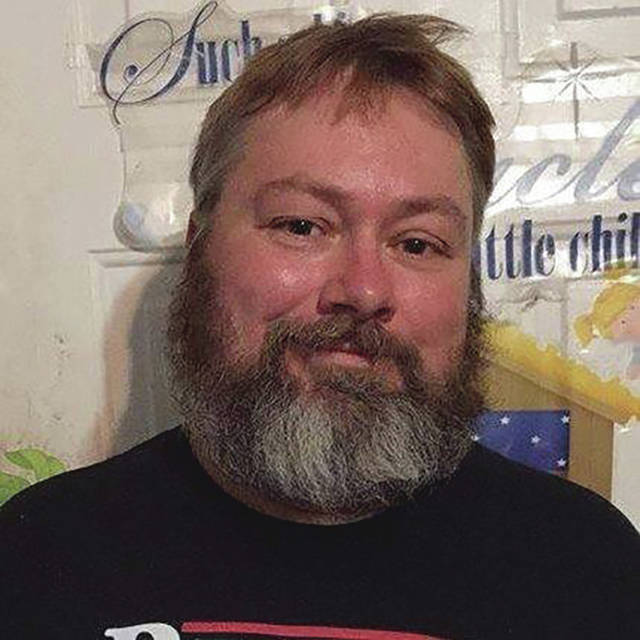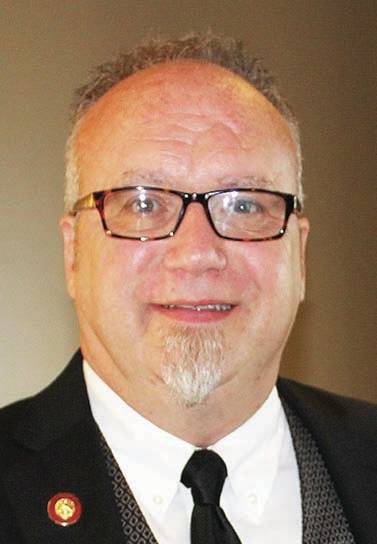‘The Joker’ highlights problem in society
Published 10:15 am Monday, February 3, 2020
|
Getting your Trinity Audio player ready...
|
“Our fathers were our models for God…”
Tyler Durden from “Fight Club”
Here’s my warning right off the bat (pun intended), if you haven’t seen Todd Phillip’s 2019 film, “The Joker,” and you think you might want to, then save this to read for later. There will be major spoilers about the film in this piece.
The film is a nightmarish look at the downward spiral of a human being, in this case, Arthur Fleck, a part-time clown and failed stand-up comedian. Fleck, who later transforms into Joker through a serious of mishaps, incidents and violent acts is a hapless good nature soul at the beginning of the movie. He is a person, who at face value, strives to be a good person in the face of adversity and his mental illnesses.
Fleck, who by his own admission tries to bring joy and smiles to those around him, from his work as a clown to caring for his aging and ill mother, suffers a series of setbacks that put him on a path where he chooses to enact violence on those he feels deserve it.
This begins while on the subway, after being fired from his job as a clown, three young stockbrokers begin to harass an attractive young woman on the subway. Fleck takes their attention away from by laughing. A condition was told in the film that is uncontrollable and a part of his condition. The three young men begin to beat him mercilessly on the subway floor until he shoots two of them dead on the train. He wounds the third and follows him off the train and fires three more shots into him, thus killing him as well.
This was one of the first steps at transforming Fleck into Joker. The first two men on the subway he killed in self-defense. The third, however, he stalked down and shot while he was no danger to him or anyone else. Fleck then made his way to a public restroom and ritually danced in some form of celebration. This is a ritual he repeated throughout the film as he spiraled deeper into chaos.
It is obvious that “The Joker” is a mirror to contemporary society even though it seems to be set int he late 1970s or early 1980s. The Gotham portrayed here is particularly dark and forbidding. It is a place of the individual, alone, shuffling, seemingly aimlessly towards the abyss. Even the very wealthy in the film, such as Thomas Wayne and the Wayne family seem disconnected from the world, and though they have some knowledge of the unrest in society, they are tremendously out of touch with those occupying other rungs on the societal ladder.
There are also the parts of the film that deal with mental illness, especially the aspects of how mentally ill people often fall through the cracks. There’s also the insufficiency of society in all its functions from government, medical, to the family are ill-equipped to deal with many of the problems associated with mental illness. This is driven home by all the problems Arthur has from his therapist never really listening to him to budget cutbacks, to his problems obtaining his medication and taking it.
These issues are real enough to most of us through news media and other cinema, if we don’t deal with it within our families as well. There’s also the issues of poverty and lack of opportunity thrown in among mental illness and insufficient social structures. That being said, I need to shift gears because there’s no way I can unpack and cover all the intricacies of the film and what it tried to say in the space of this column.
Arthur Fleck for all his problems, awkwardness and general inability to function in the world, suffered from one thing above all. One thing that sparked some of his greatest rage and contributed greatly to his downfall was the lack of a father. Now I know some of you are probably going to recoil at that assertion and feel as if this some unwarranted attack on single mothers. It’s not. It’s not even an attack on single parents, mothers or fathers. I have experience with both, Many productive, upright, and altogether wonderful people have emerged from single-parent homes. Sometimes in spite of it.
Though this is no attack there is evidence that supports the nuclear family is ideal and the lack of a father can be detrimental to a young man. According to studies from the United States Justice Department children from fatherless homes account for 63 percent of youth suicides, 90 percent of all homeless youth and runaways, 85 percent of all behavioral disorders, 71 percent of all high school drop-outs, 70 percent of those incarcerated in juvenile facilities. Studies in 2016 suggest that at least 45 percent of all those in juvenile detention had come from homes where they lived with only one parent.
In 2016, the United States Census Bureau suggested that living in a single-parent home would increase the likelihood of being below the poverty level. This is also an issue in the film, where Arthur struggles with poverty and it is evident in many of those around him. This brings to the quote at the beginning of this piece. “”Our fathers were our models for God. If our fathers bailed, what does that tell you about God? Listen to me! You have to consider the possibility that God does not like you. He never wanted you. In all probability, he hates you.”
This from the film “Fight Club,” which deals with some of the same topics, albeit in a much different manner than “The Joker” accurately depicts the Gotham of Arthur Fleck.
There’s hardly a mention of morality in “The Joker” and no mention of God to my knowledge. There’s no symbolism to point towards God in the film either, not that I found on my first viewing, other than the picture above Penny Fleck’s bed. The Godless and fatherless society has its toll on Arthur as does his disappointment in his search for father figure like Murray the talk show host, his co-worker Randall, and eventually, Thomas Wayne, whom his mother claims to be his father. It’s no surprise that all three of these characters meet their end in the film and two by Arthur’s own hand.
The film, drew on earlier incarnations of loneliness, alienation and violence, like the aforementioned “Fight Club” and pictures like “Taxi Driver.” The violence and the attraction towards these themes by many disaffected young men are probably part of what gave rise to the push-back against “The Joker” and the swirl of rumor and controversy surrounding it. I think in many ways the energy is misplaced.
In my opinion, the energy should be focused on the real-life that these films mirror and the reasons for the disconnectedness and the disaffected. Who knows how Arthur Fleck would have turned out if there had been a father in the home — one to care for, love, and protect, not only him but his mother. Who knows how that would turn out in all the real-world instances of fatherlessness and all the things that derive from it.






